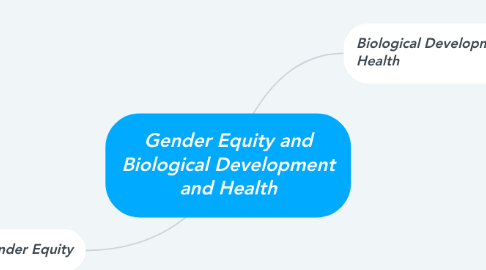
1. Gender Equity
1.1. Gender refers to those attitudes and behaviors accepted by the society as appropriate ways of being a woman or a man.
1.2. Education equity is based on the premise that an individual´s level of education is correlated directly to future quality of life.
1.3. Gender equality in education means that members of both sexes should legally enjoy the same rights, resources, opportunities and protection.
1.3.1. It means that boys and girls have the same opportunities in the future in terms of economic, social, cultural and political issues. In other words, girls will get benefits according to their needs.
1.3.2. Gender discrimination in education is the unfair treatment of girls and denial of opportunities and violation of rights.
2. Biological Development and Health
2.1. Biological development includes stages that start when a baby is still in the womb. The infant stage is also a time of crucial growth and development, and important milestones continue as a person grows, even into adulthood.
2.2. Growth refers to increase in size, length, height and weight. It is one of the parts of the developmental process.
2.3. The prenatal stages of development
2.4. Brain development before birth
2.5. Important growth and development stages in infants and children
2.6. Maturation of adolescents
2.7. How children and adolescents learn
2.8. Health and learning
2.9. The word “health” refers to a state of complete emotional and physical well-being and a resource for living and enjoying a full life.
2.9.1. There are some factors: genetics, the environment, relationships with friends and family and the level of education and income.
2.9.2. There are some issues that can help us maximize our health: balanced and nutritious diet as natural as possible, regular exercise, screening for diseases, coping strategies, learning how to manage stress, engaging in activities where you can help others, appreciate what you have; and defining a value system and putting it into action
